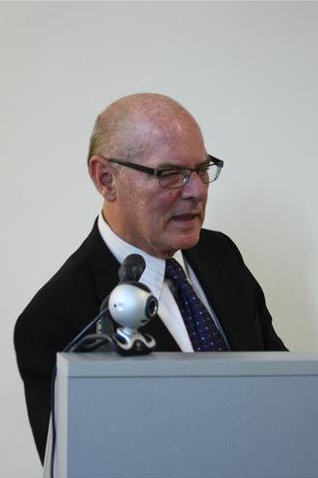
George Vredeveld
Alpaugh Family Chair in Economics – Emeritus, University of Cincinnati
Research Associate, Varna Free University
In the 1960s, economist Edward Denison developed new studies on the causes of economic growth, including the effect of adding more land, labor and capital to the production process. Initially Denison found that changes in the amount of these factors of production explained only 20 percent of the growth in the economy. The 80 percent of economic growth that was still unexplained was called the “residual”. Now, given several decades of further work we know that much of this “residual” can be explained by increases in the productive capacity of human capital generated by education.
Today there is a broad recognition of the relationship between economic development and the development of human capital — it is the most powerful tool we have for creating a strong and vibrant way of life for all of us. Labor markets have demonstrated the value of a college education to individuals. In the 1970’s, U.S. college graduates, on average, earned about 40 percent more than a non-graduate. Today, this premium has increased to about 80 percent. The reason for the increase is likely the continuing demand for workers with higher level of education and skills.
In considering the total social benefits of improving human capital, New York University economist Paul Romer observes that human capital is the only form of capital with infinite potential returns. However, to realize these returns, regions must create an environment that is conducive to the development of its citizens. This requires more than technical knowledge, it requires problem solving, creativity, the capacity to innovate and the ability to adapt to increasing change. According to Romer, a region should create a quality of life that encourages students to stay in the region and attracts new talent. This means fostering a culture that rewards risk-taking, values meritocracy and tolerates a wide diversity of ideas and lifestyles. In short, ideas and lifestyles have become important to economic development.
Models of economic development have always recognized the importance of the creation of a skilled workforce through education. More recently these models emphasize the importance of social and cultural factors that stimulate growth. Universities contribute to the creation of these factors by convening and creating spaces for inquiry, risk-taking, cross-fertilization of ideas, and openness to change. It appears that the returns to a community’s investments in education have continued to increase in many ways. It has a larger payoff to the educated individual, it helps to create a more skilled and creative workforce which is increasingly the base for economic development and it contributes to the type of society and culture that is attracts and retains the workforce and ideas that will spur growth in the future.

0 responses on "The contributions to economic growth of universities."